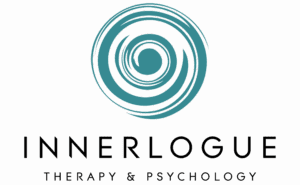EMDR Therapy in Calgary: Evidence-based therapy for processing trauma
Evidence‑based eye‑movement desensitization and reprocessing to help you process trauma, anxiety and distressing memories.
Do distressing memories replay in your mind no matter how hard you try to forget them?
Eye Movement Desensitization and Reprocessing (EMDR) is an evidence‑based therapy that helps you process traumatic experiences without reliving every detail. Our therapists use EMDR to reduce the emotional charge of memories linked to PTSD, anxiety, depression, phobias, grief and performance anxiety so you can move forward with confidence.
Our approach. Your progress.
Targeted Trauma Processing
EMDR uses bilateral stimulation techniques such as eye movements or tactile sensations to reprocess traumatic memories.
Reduced Emotional Charge
Clients often experience significant reductions in distress without having to recount every detail of the trauma.
Versatile Applications
EMDR can treat PTSD, anxiety, depression, phobias, grief and performance anxiety.
Meet Our Therapists
EMDR can help people move through trauma, anxiety, and painful memories in a new way. Our trained therapists create a safe, supportive space to guide you through the process, at your pace, with care and clarity. Whether you’re new to EMDR or looking to continue work you’ve already started, we’re here to support your healing.

Lizzie Smith
Draws on military experience to support adults, children and couples, especially veterans and first responders, using CBT, DBT, EMDR and Gottman methods in a welcoming, 2SLGBTQIA+ affirming space.

Yuchen Zhong
Registered provisional psychologist creating a warm, collaborative space for healing and growth, drawing from EFT, IFS, ACT and EMDR to support diverse clients facing life transitions and trauma.

Eva Xu
Supports teens and adults with trauma and PTSD using Attachment‑Focused EMDR and neurobiological techniques; bilingual in Mandarin/English and attuned to cross‑cultural challenges.
How EMDR Works

Traumatic experiences can leave lasting effects on emotions, thoughts and behaviours. EMDR guides you through bilateral stimulation while you recall a distressing memory, helping your brain reprocess the event and reduce its emotional charge.
Unlike some therapies, EMDR doesn’t require clients to recount every detail of the trauma.
What to Expect During EMDR Therapy
Sessions begin by assessing your readiness and teaching coping strategies. During processing, you focus on a memory while following a moving stimulus or another form of bilateral stimulation.
After each set, you briefly discuss what arose. Treatment length varies, some people feel relief after a few sessions, while others benefit from longer therapy depending on the complexity of their experiences.

An effective treatment for PTSD & Trauma

- PTSD symptoms
- Anxiety and panic
- Depression
- Sleep disturbances
- Emotional dysregulation
- Flashbacks and intrusive memories
- Avoidance behaviors
- Hypervigilance
- Low self-esteem and self-worth
- Relationship challenges
- Difficulty with trust and intimacy
Ready to process and move forward from trauma?
Book an EMDR session or schedule a free consultation to learn more.
Frequently Asked Questions
Trauma‑related conditions as well as anxiety, depression, phobias, grief and performance anxiety.
The duration differs for each person; some improve after a few sessions, others need more time.
Yes. EMDR is a safe, evidence‑based therapy used by trained professionals.
Related Topics

The Benefits of EMDR Therapy for Trauma Healing in Calgary
Experiencing trauma can deeply disrupt a person’s life. Whether it’s a car accident, assault, abuse, or a major loss, these events can leave lasting—though not


